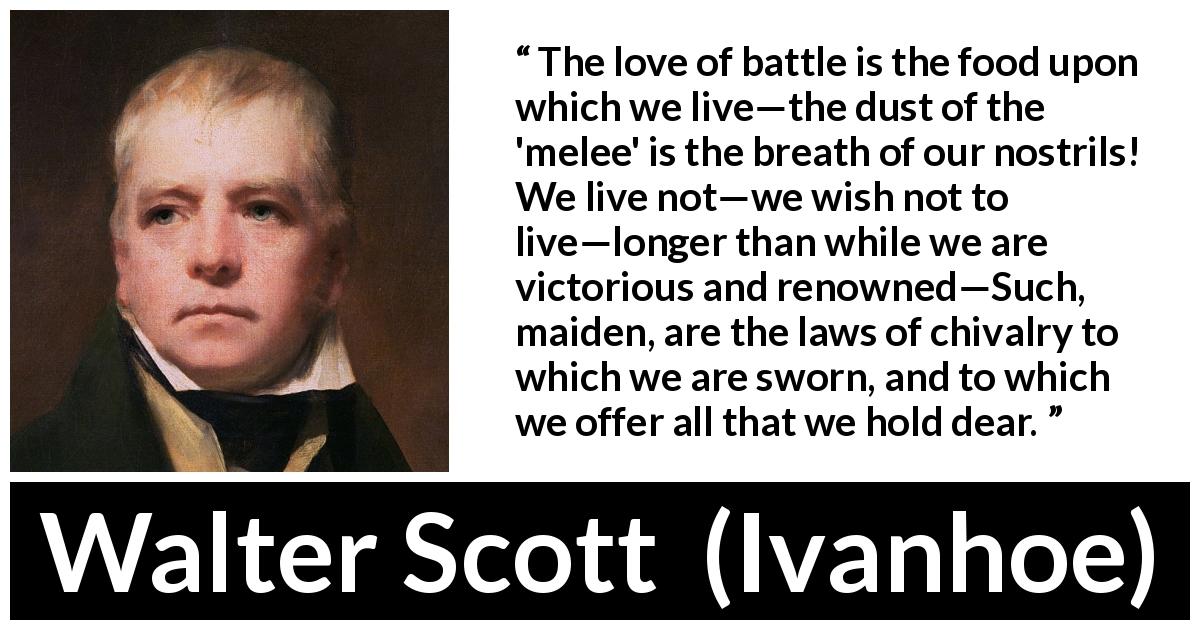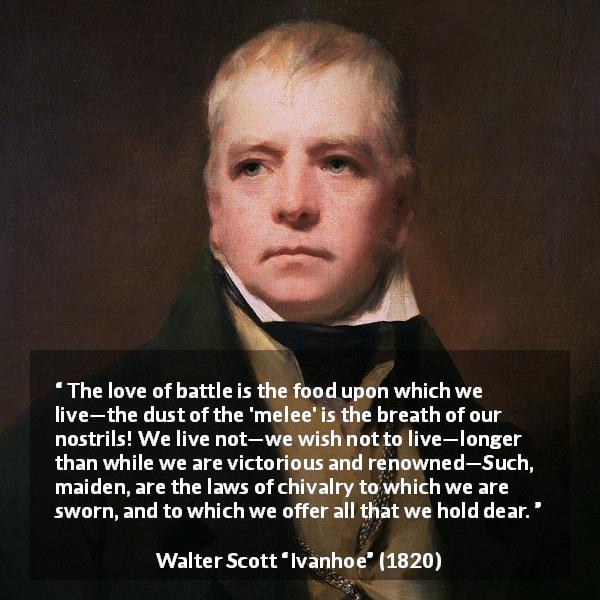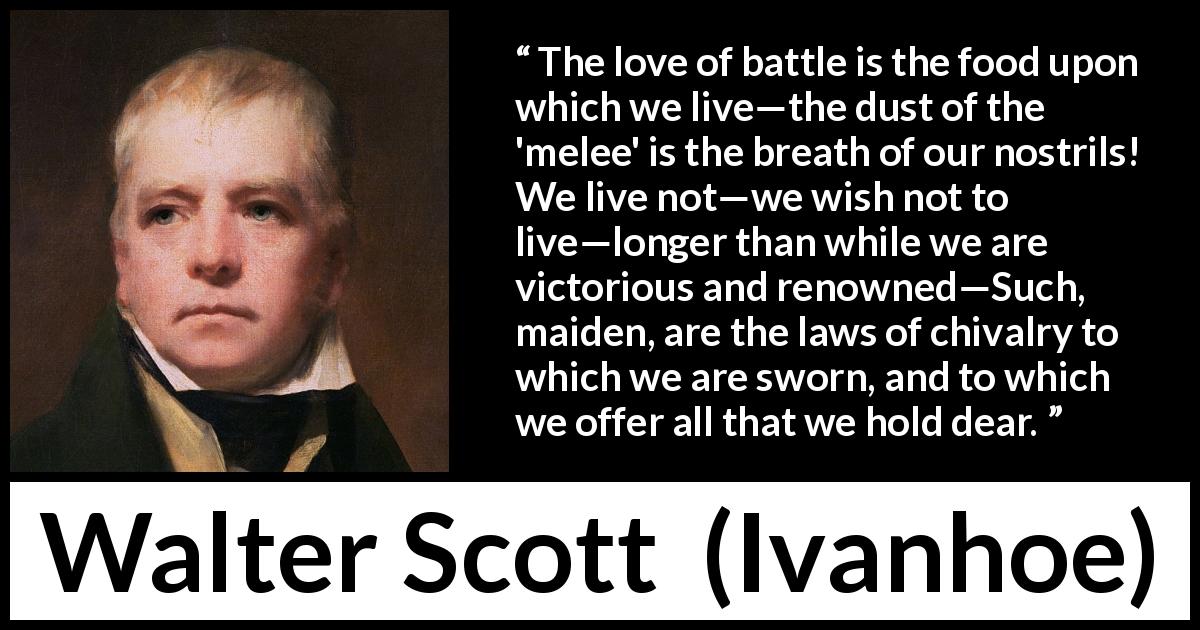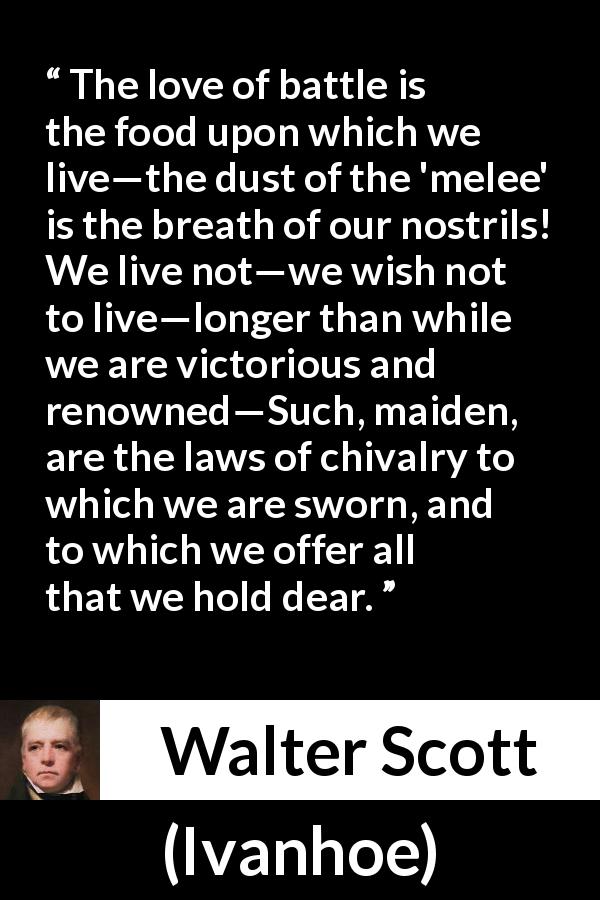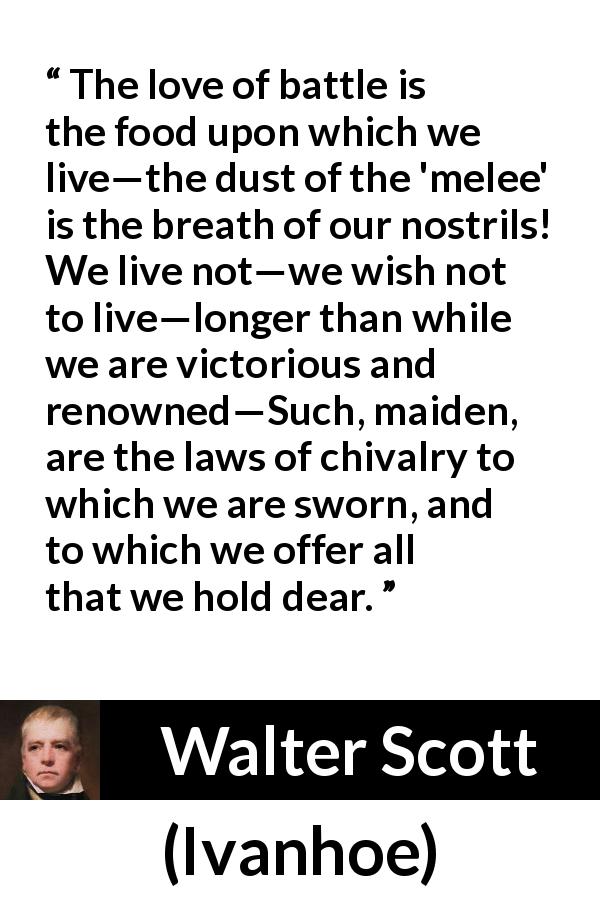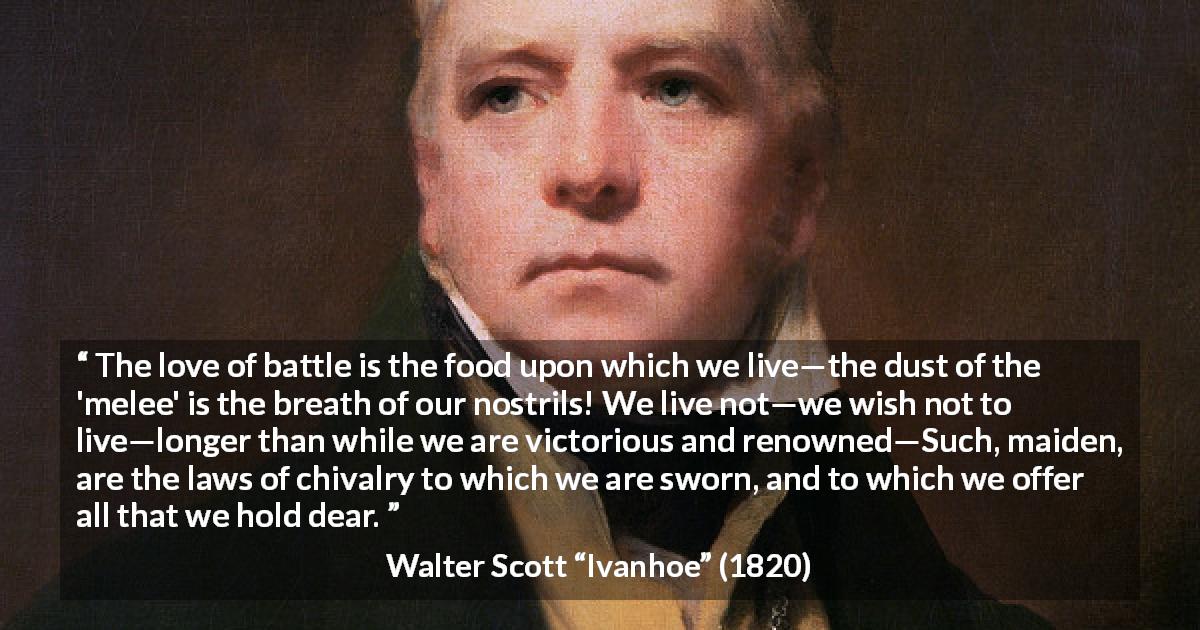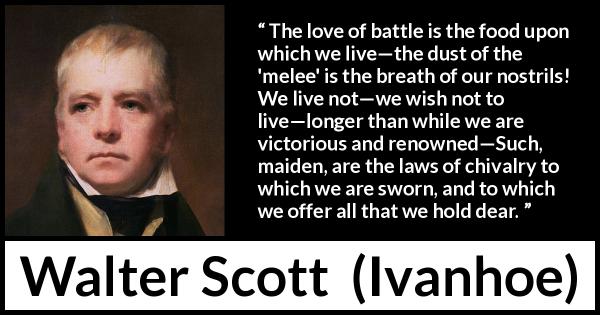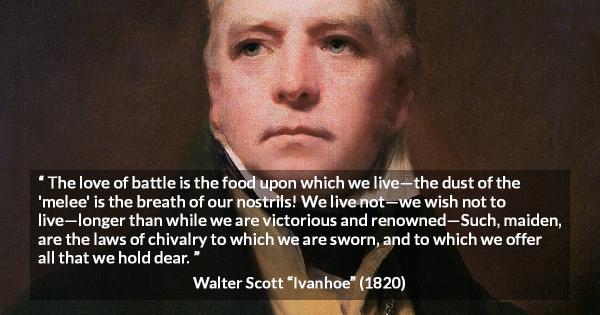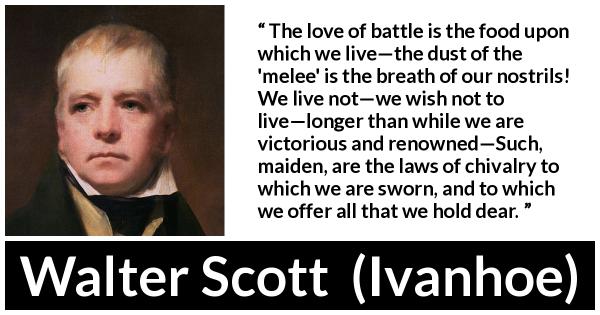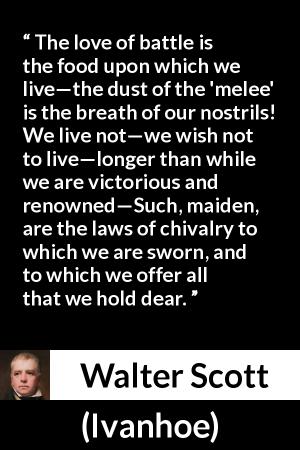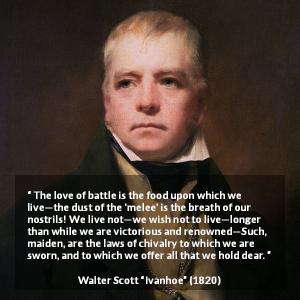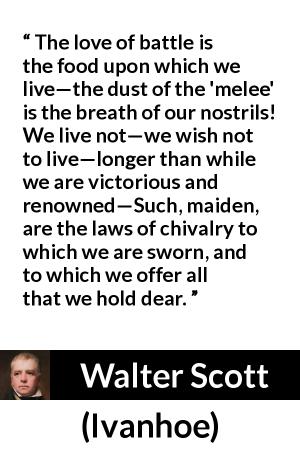“ The love of battle is the food upon which we live—the dust of the 'melee' is the breath of our nostrils! We live not—we wish not to live—longer than while we are victorious and renowned—Such, maiden, are the laws of chivalry to which we are sworn, and to which we offer all that we hold dear. ”
Walter Scott, Ivanhoe (1820). copy citation
| Author | Walter Scott |
|---|---|
| Source | Ivanhoe |
| Topic | fight glory chivalry |
| Date | 1820 |
| Language | English |
| Reference | |
| Note | |
| Weblink | http://www.gutenberg.org/files/82/82-h/82-h.htm |
Context
“«Alas,» said Rebecca, leaving her station at the window, and approaching the couch of the wounded knight, «this impatient yearning after action—this struggling with and repining at your present weakness, will not fail to injure your returning health—How couldst thou hope to inflict wounds on others, ere that be healed which thou thyself hast received?»
«Rebecca,» he replied, «thou knowest not how impossible it is for one trained to actions of chivalry to remain passive as a priest, or a woman, when they are acting deeds of honour around him. The love of battle is the food upon which we live—the dust of the 'melee' is the breath of our nostrils! We live not—we wish not to live—longer than while we are victorious and renowned—Such, maiden, are the laws of chivalry to which we are sworn, and to which we offer all that we hold dear.»
«Alas!» said the fair Jewess, «and what is it, valiant knight, save an offering of sacrifice to a demon of vain glory, and a passing through the fire to Moloch?—What remains to you as the prize of all the blood you have spilled—of all the travail and pain you have endured—of all the tears which your deeds have caused, when death hath broken the strong man's spear, and overtaken the speed of his war-horse?»” source
«Rebecca,» he replied, «thou knowest not how impossible it is for one trained to actions of chivalry to remain passive as a priest, or a woman, when they are acting deeds of honour around him. The love of battle is the food upon which we live—the dust of the 'melee' is the breath of our nostrils! We live not—we wish not to live—longer than while we are victorious and renowned—Such, maiden, are the laws of chivalry to which we are sworn, and to which we offer all that we hold dear.»
«Alas!» said the fair Jewess, «and what is it, valiant knight, save an offering of sacrifice to a demon of vain glory, and a passing through the fire to Moloch?—What remains to you as the prize of all the blood you have spilled—of all the travail and pain you have endured—of all the tears which your deeds have caused, when death hath broken the strong man's spear, and overtaken the speed of his war-horse?»” source
